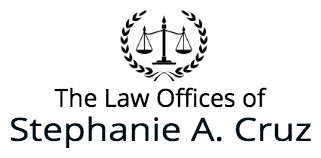Estate Planning & Guardianship
Estate Planning
Having a will or trust alone accomplishes certain goals, but it does not take care of other situations that may arise during life's unexpected moments.
For probating your will, our office can assist you in the appointment of your personal representative of your choice to probate your will after you pass away, and we will perform important estate-related tasks, such as inventorying your possessions, paying your creditor claims, and distributing your assets according to your expressed wishes.
However, aside from having a will and trust, we recommend having the following as part of your estate plan:
- Powers of attorney: A person you trust is authorized via the Power of Attorney to manage your assets, sign legally binding documents, defend you in lawsuits, prosecute lawsuits, file income tax returns, apply for governmental benefits, and make financial decisions for you in the event that you are physically or mentally unable.
- Health care directives/living wills/proxies. An advance healthcare directive is a document that would legally obligate health care professionals, and doctors, to provide or withhold certain medical care and life prolonging procedures, according to your wishes, in the event that you were to become incapacitated as a result of your terminally illness. Additionally, we would advise you to have a health care proxy which would authorize an agent, someone you trust, to make your medical decisions for you if you cannot. Our office recommends that the proxy agent have a HIPPA release to accompany the proxy, as the Health Insurance Portability and Accountability Act of 1996, would otherwise be a barrier between information and the decision makers entrusted to make critical health decisions.
Guardianship
In Florida, guardianship is usually required in two situations identified below:
- When a minor receives assets in excess of $15,000.00
- If a person is determined by a court of law to be incapacitated, the person would be classified as a ward, and a court appointed guardian will be ordered by the court to exercise power over the ward to make binding legal decisions on behalf of the incapacitated individual. A guardianship is usually appropriate if a person is no longer able to make or communicate safe or sound decisions about his or her person and/or property. For example, they may be failing to pay their bills, losing track of accounts, mishandling medications, driving unsafely, neglecting hygiene, displaying angry or paranoid behavior, etc.
Types of Florida Guardianships Our Firm Can Help You With:
- Guardianship of a minor
- Limited guardianship
- Plenary guardianship
- Guardian advocate
- Pre-need guardian
- Standby guardian
- Emergency temporary guardianship
